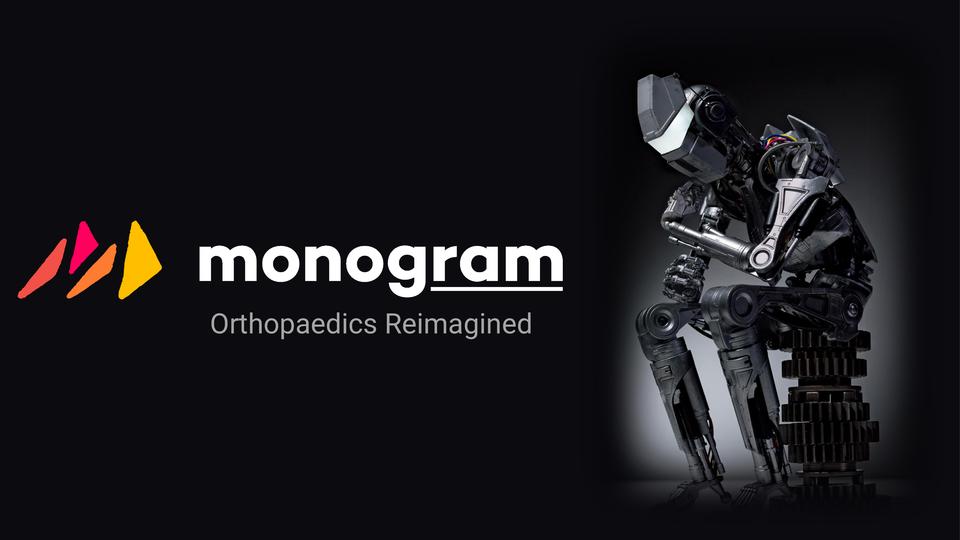Deal Abstract
https://www.seedinvest.com/monogram/series.a
Using computers to make better implants. Joining machine learning (detecting patterns in molds,) robotics (no-human error,) and 3D printing (small batch, highly detailed manufacturing.) “By linking 3D printed implants and advanced robotics via automated digital image analysis algorithms, Monogram has achieved greater stability, implant insertion accuracy, and fit than current conventional methods, based on our collaborative study with UCLA Biomechanics Laboratory.”
Decision
No
Why Investing/Passing
- “Innovation in orthopedics is slow and inefficient. Large interdependent oligopolistic companies dominate the market with implants that are almost indistinguishable and robotic technology that is costly, limited, slow, and replaceable. As it stands today, almost all of the robotically inserted implants could be inserted with manual instruments. The cost of capital, distribution, and development have built almost insurmountable barriers to entry which has led to four companies having a monopoly of over 76% of the $18B market.”
- Valuation at 21.5MM pre-money, my $200 buys nothing.
- Great products don’t make for great business.
The 6 Calacanis Characteristics (91 161 18)
| Check | Pass/Fail |
| 1. A startup that is based in SV | Fail: (Brooklyn, NY) |
| 2. Has at least 2 founders | Pass |
| 3. Has product in the market | Fail |
| 4. 6 months of continuous user growth or 6 months of revenue. | Fail |
| 5. Notable investors? | Pass: Icahn School of Medicine at Mount Sinai |
| 6. Post-funding, will have 18 months of runway | Fail: no numbers despite having been marketing on SeedInvest for two months. |
No data, no SEC confirmation, has been in business since 2017 and can’t get a product to market. Has gone from 6MM to 8MM to 10MM and now 20MM.
Monogram profile on SeedInvest
The 7 Thiel Questions (ETMPDDS)
- The Engineering question:
- Good: allegedly 7x better than everything else.
- Good: allegedly 7x better than everything else.
- The Timing question:
- Bad: this is not a market that is suddenly going to have incumbent power taken away.
- The monopoly question:
- Bad: this is a product, not a business.
- The people question:
- Good: yes on the product side, not bad on the business side.
- The distribution question:
- Horrendous: one of the biggest killers of this business.
- The durability question:
- Bad: Maybe the data from molds is defensible, but everything else with capital could be taken from a Stryker/large company quickly. That said, the regulation and passing of tests is probably not as fast, but this is not a fast moving market.
- *What is the hopeful secret?:
- “Great products make great businesses!”
- “Great products make great businesses!”
What has to go right for the startup to return money on investment:
- Product passes and is the best in breed by a long shot.
- Patents and protection are strong enough for defense.
- Some mega healthcare company wants to assemble a portfolio of key technologies like this to then make a super healthcare portfolio.
What the Risks Are
- Distribution risk.
- Market risk.
- Business model risk.
Financials (References)
- Total Round Size: US $20,000,000
Raise Description: Series A
Minimum Investment: US $1,000 per investor
Security Type: Preferred Equity
Pre-Money Valuation: US $21,250,000
Target Minimum Raise Amount: US $2,750,000 - Closing conditions: Needs to get approval from SEC to even start fundraising.
- Security Type:Preferred Equity
- Shared Price: $4.0
- Valuation Cap:US $21,250,000
- Option Pool:2.0%
Updates

08/30/21: Paid for an ad in Inside.com newsletter, raising new round at $35m valuation that's 66% increase in 2.5 years.


